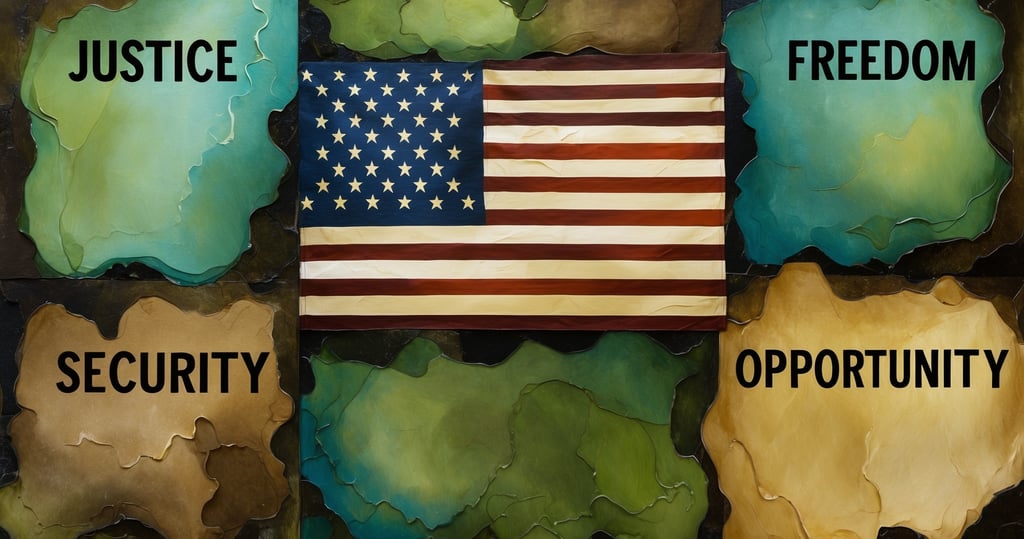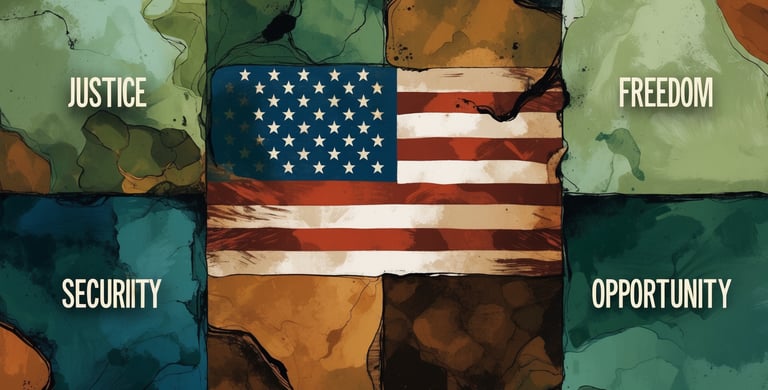The Paradox of The Good Government
How do we become ethical enough to no longer need authority?
4FORTITUDED - DEFENSE, RESISTANCE, POLITICS, HISTORY
The Paradox of Good Government:
A Philosophical Exploration of Governance, Economics, and Human Virtue
Introduction
Governance, at its core, is the art of managing human behavior within a structured system to ensure justice, security, freedom, and opportunity. This involves determining who gets what—what resources, freedoms, punishments, and opportunities. Throughout history, humanity has wrestled with designing systems that balance authority with liberty and fairness with efficiency. This exploration introduces the "Paradox of The Good Government," a philosophical construct that addresses the inherent tension between human virtue and the necessity of governance.
By critically examining existing systems and offering contrarian insights, we propose actionable solutions for men seeking to lead virtuous, resilient lives within a structured society.
The Central Problem of Governance
The Paradox of The Good Government:
"If government is necessary, it is essentially necessary for four functions: justice, security, freedom, and opportunity. These functions are required because of human shortcomings and immorality—weakness, selfish ego, fear, and ignorance. If humans matured out of these shortcomings, to be of the utmost virtue and efficiency, any governmental and economic system would work equally well, and simultaneously, we would reach the point where no government would be necessary." — Shain Clark
This paradox highlights the deep tension between human nature and governance. Government exists to compensate for our imperfections, yet its very existence also fosters dependency and coercion. If humanity collectively achieved virtue, governance would become obsolete, ensuring justice, freedom, and opportunity organically. However, since universal virtue is lacking, governance remains necessary to prevent chaos and injustice.
Governance as a Reflection of Human Nature
Governance is not merely an imposed system but a reflection of our collective virtues and vices. Systems fail not due to flawed structures but due to flawed people. Therefore, an effective system must:
Recognize human imperfections.
Minimize coercion and power concentration.
Promote continuous moral development.
A Critique of Existing Systems: Socialism, Capitalism, and Democracy
Socialism and Communism: The Problem of Coercion and Dictatorship
Socialism seeks equality through collective ownership. However, history reveals its tendency toward authoritarianism. Centralized power often results in coercion, suppression of dissent, and loss of freedom.
Contrarian Viewpoint: Could localized, voluntary socialism succeed in small communities where trust and accountability are high? How can equality be pursued without coercion?
Capitalism: The Problem of Corporate Dictatorship
Capitalism encourages innovation but, without ethical boundaries, results in corporate dominance and wealth disparity.
Contrarian Viewpoint: Can capitalism integrate ethical safeguards, such as transparency laws, decentralized markets, or worker ownership, to prevent corporate overreach?
Democracy: The Problem of Mob Rule
Democracy, while championing freedom, often devolves into factionalism and majoritarian tyranny. A 51% majority can impose its will on the 49%, leading to ethical imposition rather than genuine representation.
Contrarian Viewpoint: Could direct democracy, where citizens vote on policies rather than representatives, alleviate these issues? Or would it exacerbate them?
The Solution: A Rational Approach to Governance
Inspired by principles from Christianity, Stoazen (Stoicism/Taoism/Zen), and PhiloTheoSophia, I propose a governance model emphasizing simplicity, virtue, and self-governance.
Core Values of Governance:
Justice: Fair and equal treatment under the law.
Security: Protection from internal and external threats.
Freedom: The right to live without undue interference.
Opportunity: The ability to improve one’s circumstances.
In my works on PhiloTheoSophia, I argue that Fortitude, Wisdom, Altruism, and Equanimity are the four foundational virtues. On a societal scale, these manifest as Justice, Security, Freedom, and Opportunity—maximizing these ensures minimal suffering and maximum flourishing.
Principles of a Virtue-Based System:
Minimize Coercion: Rely on voluntary cooperation rather than force.
Promote Local Governance: Decentralize power to prevent concentration and abuse.
Foster Virtue through Education: A virtuous society requires continuous moral development.
A Practical Framework for Implementation
Decentralization of Power
The Nation-State Solution: Small states operate with localized governance while national government handles only defense and infrastructure, preventing localized human rights violations.
Decentralized Decision-Making: Local communities tailor policies to reflect their unique needs.
Simplified Legal and Economic Systems
Laws should be clear, concise, and universally applicable.
The tax system should be simple and fair, funding only essential services.
Continuous Moral Education
Promote virtue through philosophical and religious education, community engagement, and cultural practices.
Encourage individuals to take responsibility for their actions and their communities.
Final Thoughts: Building a Society of Virtuous, Resilient Men
The success of any governance system depends on the virtue of its people. For men seeking resilient, virtuous lives, key takeaways include:
Governance Reflects Character: Our systems mirror our collective virtues and vices.
Simplicity is Strength: Simple, well-understood systems succeed more than complex, opaque ones.
Virtue is Essential: No governance system can replace personal responsibility. Building a better society starts with cultivating virtue in oneself.
Reflection
By embracing the tension within the Paradox of The Good Government and fostering personal virtue, how can we craft a system that balances justice, security, freedom, and opportunity while minimizing coercion? How do we create an environment where individuals not only survive but thrive, growing into the virtuous men necessary for a just and free society?




